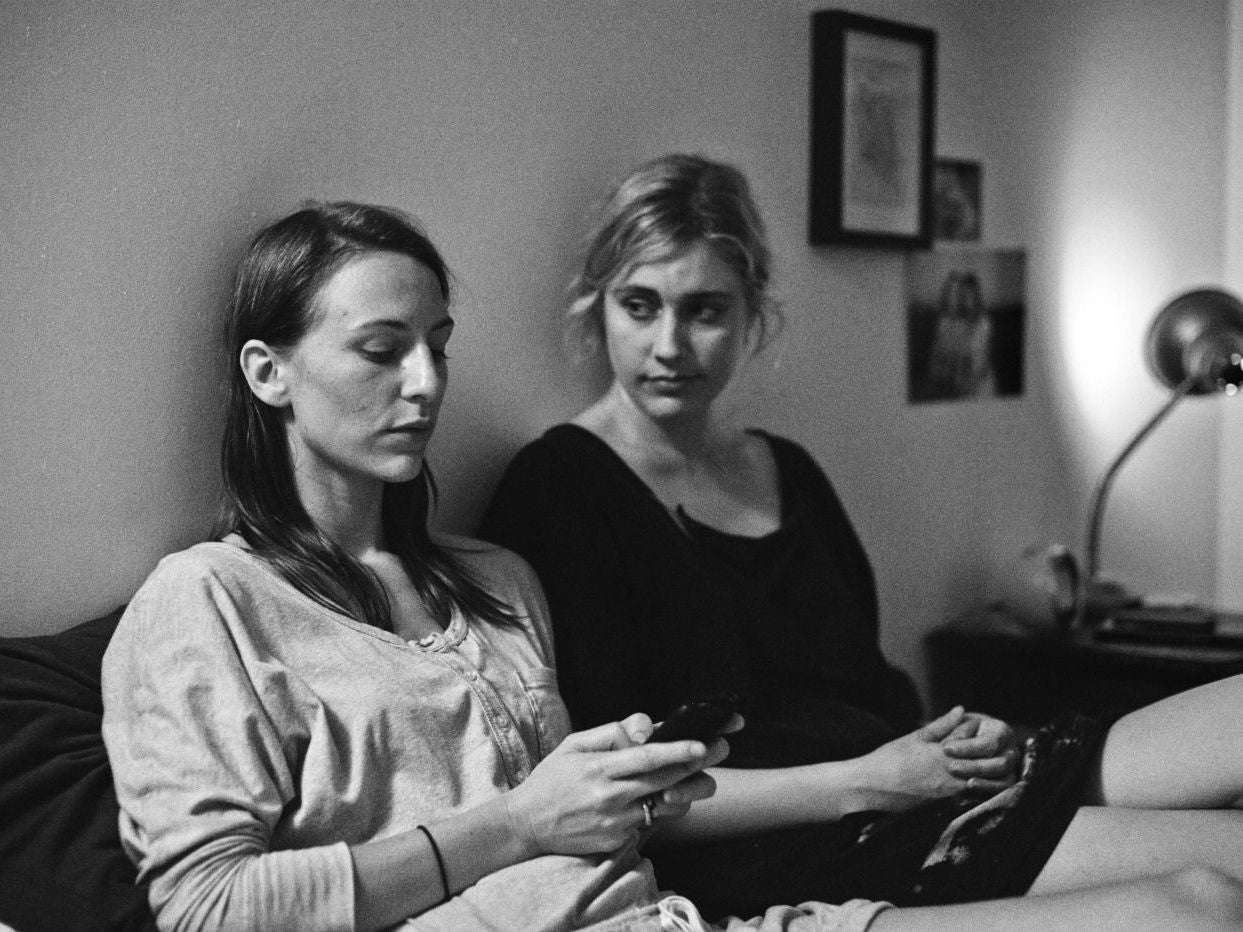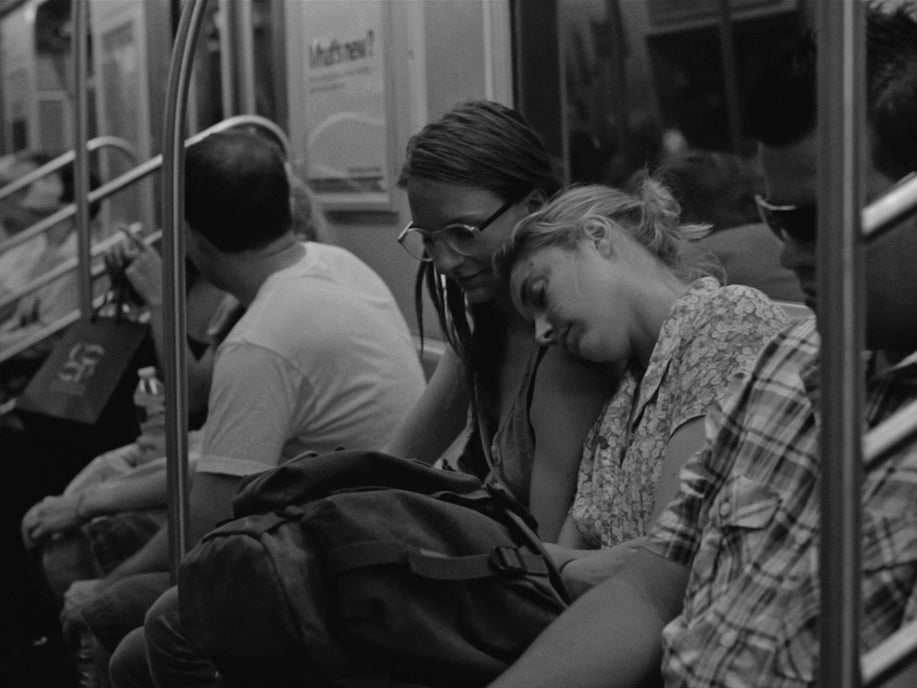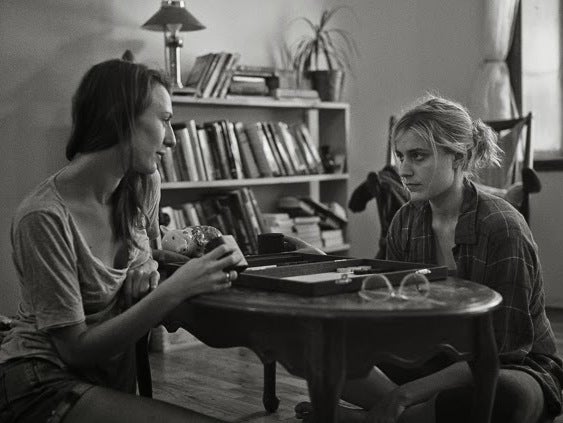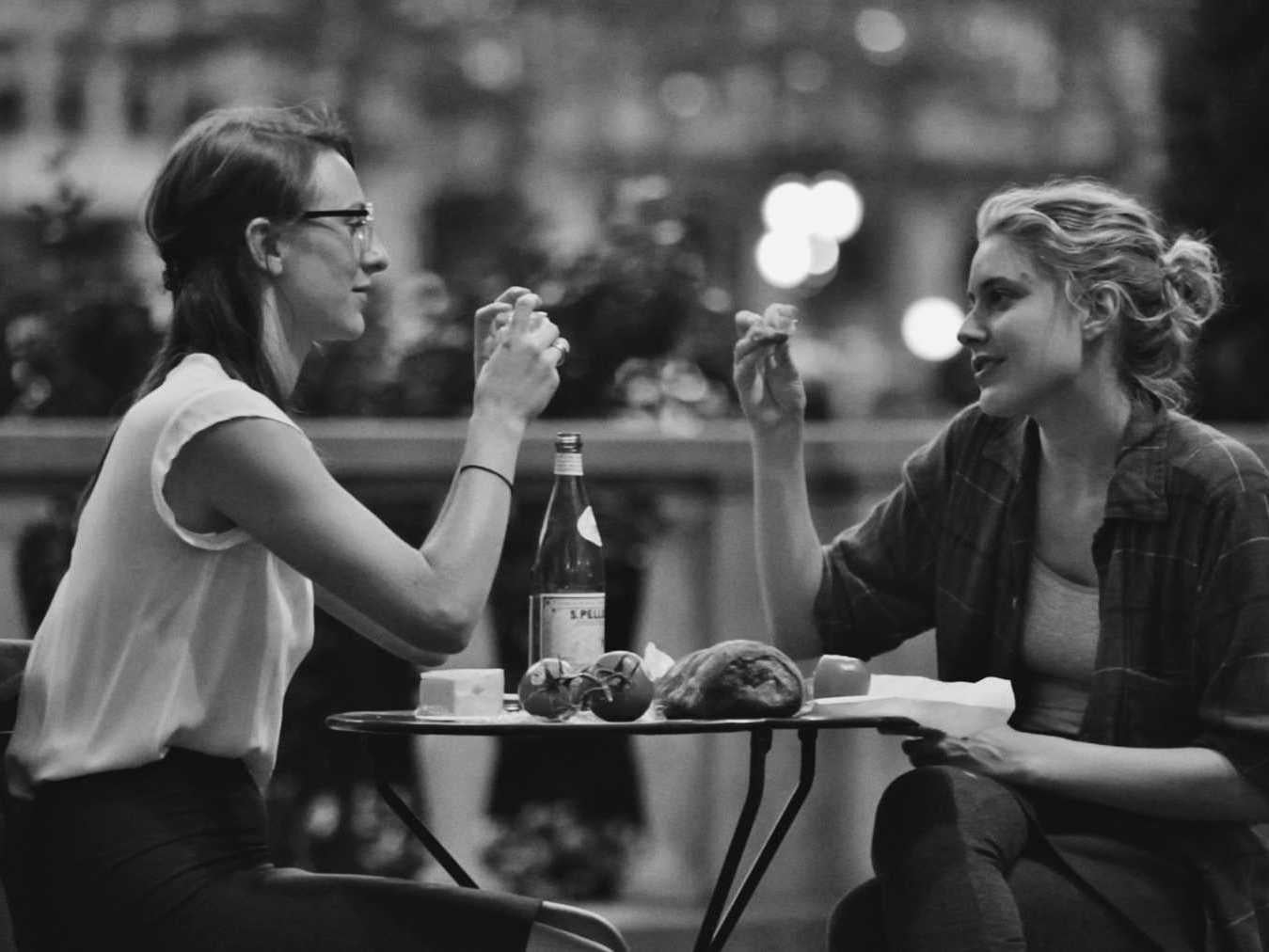Noah Baumbach’s Frances Ha captures the pain of breaking up with a friend
Greta Gerwig's breakout film exposes the possessiveness that can take over female friendships when men enter the picture. Most women have a story like Frances and Sophie's, writes Annie Lord


Your support helps us to tell the story
From reproductive rights to climate change to Big Tech, The Independent is on the ground when the story is developing. Whether it's investigating the financials of Elon Musk's pro-Trump PAC or producing our latest documentary, 'The A Word', which shines a light on the American women fighting for reproductive rights, we know how important it is to parse out the facts from the messaging.
At such a critical moment in US history, we need reporters on the ground. Your donation allows us to keep sending journalists to speak to both sides of the story.
The Independent is trusted by Americans across the entire political spectrum. And unlike many other quality news outlets, we choose not to lock Americans out of our reporting and analysis with paywalls. We believe quality journalism should be available to everyone, paid for by those who can afford it.
Your support makes all the difference.The first breakup I ever had was when my best friend Vicky got a boyfriend. We were so close that mean boys with short ties and JD Sports drawstring bags would call her “Leslie” (because back then, “lesbian” was still treated as a punchline) and me “Leslie’s best friend” (because I was her shadow). I sprayed Nina Ricci perfume on my neck until I choked because she insisted the toffee apple scent wasn’t too sweet. I inhaled synthetic strawberry from shisha pipes even though I hated the headache it gave me. I pretended to fancy the frontman of Bring Me The Horizon because she told me his neck tattoos were hot. She would say, “Make me laugh” and I would try, throwing bits of crumbled eraser at kids lower down the social hierarchy than us, or running my hand over other people’s on the escalators up to the Vue cinema. I loved it when people said, “You two are so annoying together,” because it affirmed that we were together at all.
I didn’t need anyone else – even if that meant that when Vicky was off sick with a chest infection, I had to spend all of lunch hiding in the science block toilets, because there was no other friend group I could attach myself to. But when we got to sixth form, everything changed. Someone else fell in love with Vicky, too. A boy.
No film captures the pain of your best friend falling in love for the first time better than the Noah Baumbach-directed Frances Ha. Filmed in the black and white of a romantic epic, it follows dancing apprentice Frances (Greta Gerwig) and her best friend Sophie (Mickey Sumner). They have been in an “I’ll keep the toilet door open while I piss so I don’t miss you” kind of love since they met in college.
When it came out in 2013, Frances Ha was endlessly compared to Lena Dunham’s Girls – but it is much better at depicting the possessiveness and competition that can take over female friendships when men enter the picture. Gerwig co-wrote the script with Baumbach. During filming, they got together, then they split, then they got back together and are now living their happy-ever-after with their son Harold. Frances Ha’s ensuing rapturous reviews hailed Gerwig as the actor of the post-recession generation. Since that time, Gerwig’s become a Hollywood darling with her directorial debut Lady Bird and her follow up Little Women. The then 29-year-old said of friendship in the film: “You don’t know when the last time of something happening is. You just know when it’s over. The opening sequence is this, like, glorious day between her and Sophie. You don’t know what the last great day you’ll spend with your best friend is. You just know when you’ve never had that day again.”
Sophie and Frances share the same symbiotic closeness as me and Vicky. Sophie tells off Frances for picking her face. They buy a kettle together at the Mexican superstore. They take waste paper bins out of each other’s rooms when the other has thrown up in it after too many tequilas. They play fight. They never actually fight. Cuddling under the duvet together, Frances shrugs, “I should get in my bed.” When Sophie asks why, she replies, “Because I pay for it.” Still, she stays in the bed, and asks Sophie to tell her their story. “We are gonna take over the world,” says Sophie. Frances carries on: “You’ll be this awesomely bitchy publishing mogul...” “And you’ll be this famous modern dancer…” adds Sophie. “And I’ll publish a really expensive book about you.” They’ll both have lovers, but the happy ending is that they’ll co-own a vacation apartment in Paris and have no children.
Me and Vicky had a story, too. We used to promise each other that when we got to 60, we would divorce our husbands and move in together. As you get older, you realise these pacts probably aren’t going to happen.

It all goes wrong for Frances when Sophie starts to like a guy called Patch. Frances doesn’t like Patch – she describes him as “the kind of guy who buys a black leather sofa and is like ‘I love it’” – but what she likes even less is how his existence means she gets less time with Sophie. “Do not treat me like a three-hour-brunch friend,” Frances yells after Sophie explains that she’s leaving to hang out with Patch. It’s not long before Sophie is filtered through to Frances by other people. A woman with swishy blonde hair and a pilates-tight torso talks about eating dinner with Sophie at a restaurant called Po (it doesn’t have to be real for me to know they serve small plates). Frances didn’t get an invite. Sophie’s “I” becomes a shared “we” with her boyfriend. After a while, the closest Frances gets to Sophie is scrolling through her Tokyo travel blog.
After Sophie’s gone, Frances finds that she doesn’t fit with anyone else. Not with her new roommates Lev and Benji, who say things like “I’m working on some sample skits for SNL” when really their parents are paying their rent. Nor with the couples at her colleague’s dinner party whose onslaught of unbearable questions includes: “Do you ever get to Paris?”
Later on at said awful dinner party, Frances tells a woman, who you suspect doesn’t care, what she wants from love. She describes the feeling you get when you catch eyes with your soulmate from across a crowded room. “It’s funny and sad, but only because this life will end, and it’s this secret world that exists right there in public, unnoticed, that no one else knows about. It’s sort of like how they say that other dimensions exist all around us, but we don’t have the ability to perceive them. That’s – that’s what I want out of a relationship. Or just life, I guess.” For a moment, you feel sad for Frances, because she’s alone.

Watch Apple TV+ free for 7 days
New subscribers only. £8.99/mo. after free trial. Plan auto-renews until cancelled

Watch Apple TV+ free for 7 days
New subscribers only. £8.99/mo. after free trial. Plan auto-renews until cancelled

I was so happy for Vicky when she first got with Tom. As two girls who did odd things like put moss in foil and try to sell it off as weed, we thought he was a catch. We used to call him “hot Hawaiian shirt guy” and narrate his every movement from across the concrete square outside college. But when the texting turned to meeting up at lunch, it got harder. No longer was she laughing hours away zooming into pictures of my double chin, but sneaking off to the park to snog him under the ramps of the skatepark outside school.
Left alone, I didn’t know what to do with myself. I would spend lunchtimes drifting around Primark slipping studded earrings into my pocket, before eating a £1 chicken tikka bap from Fatsos on the bus on the way back to college. Other times, I’d try to talk to other people, but often my eyes would drift past them and lock on to Tom and Vicky. His hand on her thigh. Her eyes squeezed shut as though there was too much joy in the world for her to be able to look at it. “Make me laugh,” she told him. And I would look away because he did it better than me.
I never didn’t like Tom. It’s just, I wasn’t Vicky’s number one anymore. As Frances says in the film: “If something funny happens on the way to the deli, you’ll only tell one person about it and that’ll be Patch and I’ll never hear about it.”

Towards the end of the film, Frances forgives Patch for taking Sophie away. When Sophie gets too drunk and calls Patch’s recently dead granddad a fascist, he asks Frances to help him get his now-fiancée home. “She’s my friend, she doesn’t even like you,” slurs Sophie as she’s loaded into the car, “I like you, Patch” Frances smiles. “I like you too, Sophie,” he says.
Eventually, Sophie and Frances find a way back to each other. Sophie comes to her dance show, and in the foyer after the performance, they look at each other, eyes misted over with love. It’s at this point that you realise Frances always did have the sort of love she was talking about earlier. Sophie’s her person. She’s not alone. You can tell they are saying something to each other, but you don’t know what that is, because there’s a whole universe in between them that no one else can see. One built out of unfunny jokes, car sickness in taxi rides, arguments over casserole dishes left in the sink.
As we get older, friendships often change. We get married, we have kids, we have jobs, we learn to value privacy, we decide we want to be liked by more than one person. But I have never stopped trying to make Vicky laugh, even though Tom is now there to make her laugh, too. Boys will come and go in my life, but Vicky will always be my greatest love story. There to help me through breakups that aren’t nearly as significant as the one we had.
Join our commenting forum
Join thought-provoking conversations, follow other Independent readers and see their replies
Comments